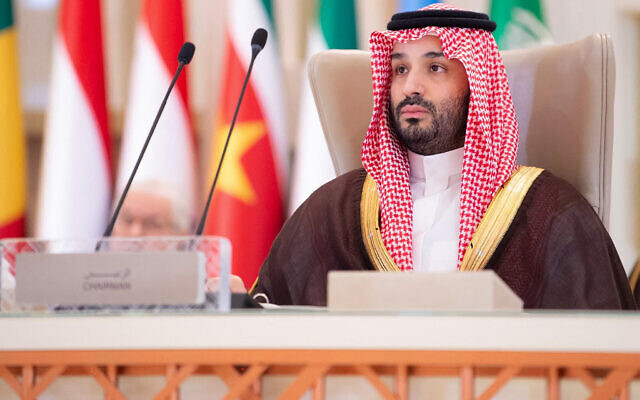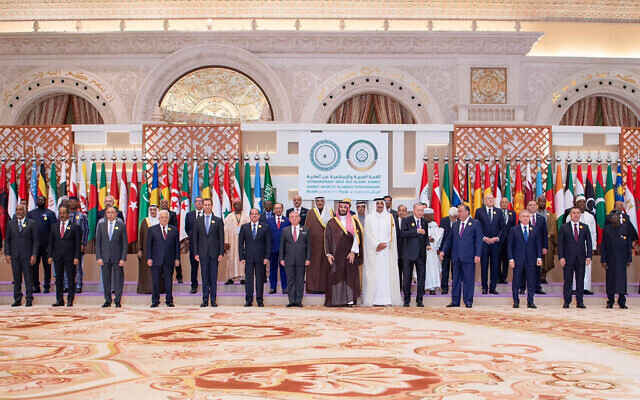
Saudi Arabia just made a move that’s shaking up the Middle East. Crown Prince Mohammed bin Salman (MBS) stunned the region when he called for the international community to respect Iran’s sovereignty at a summit in Riyadh. This is a significant shift, especially considering the long-standing rivalry between the two nations over everything from religion to oil.
MBS’s speech wasn’t just about Iran—it covered three major points:
Establishing a Palestinian state
Preserving Lebanese sovereignty
Condemning Israel’s actions against Palestinians

These points align with Saudi Arabia’s traditional stance, but it was the call for respecting Iran’s sovereignty that turned heads. For decades, Saudi Arabia and Iran have been bitter enemies, each backing opposing sides in proxy wars across the region. But, with shared concerns about Israel and the Palestinian cause, there are signs that both sides are finding common ground. China’s brokered truce and recent political and military talks are part of this shift.
Why is this happening now? For Saudi Arabia, supporting the Palestinian cause resonates with the young population, crucial for MBS’s domestic legitimacy. But there’s more to it: this rapprochement with Iran complicates the U.S.-driven push for normalizing ties between Saudi Arabia and Israel through the Abraham Accords. MBS is playing a long game here, and Tehran’s desperate need for regional allies gives Saudi Arabia leverage in this geopolitical chess match.
For Iran, this shift is about survival. Struggling under the weight of international sanctions and isolated on the global stage, Tehran is eager to rebuild economic ties with the Gulf. Meanwhile, Israel is nervous as two of the region’s largest powers unite against them—but there’s also hope that this thawing relationship might serve as a stabilizing force, easing tensions across the Middle East.
This unexpected Saudi-Iran rapprochement is more than just a shift in regional politics. It’s a sign that the Middle East’s balance of power is evolving. With both sides recalibrating, the old rivalries might not hold the same weight they once did. The game is changing—and everyone’s watching.
The Hot Zone With Chuck Holton
November 12, 2024
















